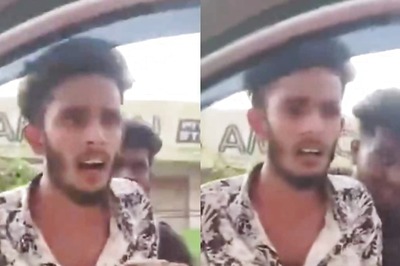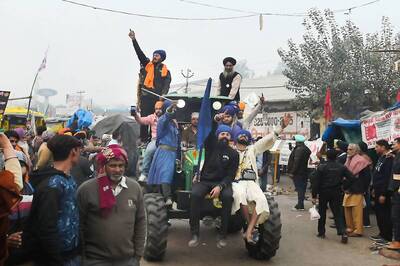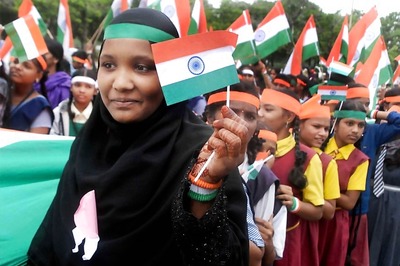
views
On May 5, Supreme Court struck down Maharashtra government’s law that had given reservations to Marathas in jobs and state’s higher educational institutions. Citing Indra Sawhney v Union of India (1992), the court said that the total quantum of reservations cannot cross the 50 per cent-mark. The Maratha reservations had taken the reservation quota in Maharashtra beyond 60 per cent.
However, the judgment did not limit itself only to striking down Maratha quota. In a decision that will have immense consequences for the Other Backward Classes (OBCs), the apex court has said that after the 102nd amendment to the Constitution, only the central government can identify socially and educationally backward classes, that is, the OBCs.
The central government had introduced the 102nd amendment to the Constitution in 2018, making the National Commission for the Backward Classes a permanent statutory body. However, the central government had also introduced a sub-clause to Article 142, which had seemed innocuous at the time, but could prove detrimental to OBC rights after the recent judgment.
Article 342A (1), the newly introduced clause, reads: “The President may with respect to any State or Union territory, and where it is a State, after consultation with the Governor thereof, by public notification, specify the socially and educationally backward classes which shall for the purposes of this Constitution be deemed to be socially and educationally backward classes in relation to that State or Union territory, as the case may be.”
Until now, state governments were free to decide which castes would be part of the OBC list in their own state. The central government had no role in these decisions. The OBC lists of many states have such castes and communities that haven’t found a place in the central government’s OBC list for those states.
State governments have historically been more responsive to the demands of the lower castes and have tried to accommodate their interests. This point becomes clear if one looks at the history of the OBC reservations.
The central government announced reservations for OBCs only in 1990 when V.P. Singh was the prime minister. However, these reservations, which started being implemented after the Indra Sawhney judgment, applied only to government jobs. The government extended these reservations to higher educational institutions in a law enacted in 2007, a full year 60 years after Independence.
The central governments have generally not been warm to OBC reservations. The first backward classes commission, popularly known as the Kalelkar Commission, submitted its report in 1955. It had recommended reservations in jobs and education and had asked the government to carry out a caste-wise census in 1961. The Nehru government didn’t accept this report. The second backward classes commission, known as the Mandal Commission, was set up in 1979. It submitted its report in 1980, however, this report gathered dust for a decade.
The union government also has consistently refused to collect data along caste lines in its decennial censuses. The last time such data was collected was in 1931 when the British were ruling the country. At the time of the 2011 census, the government agreed to conduct a separate census called the Socio Economic Caste Census but its caste-wise data was never made public. In 2018, there was some noise around collecting data on OBCs in the 2021 census but nothing happened on that front. If OBCs were enumerated, the government would have known the exact population and socio-economic condition of the OBCs, after which a case for proportional representation could have been made. The governments at Centre, however, have never shown will.
In comparison, state governments have been far more proactive towards OBC reservations. The Mandal Commission mentions that by 1980, several states, such as Andhra Pradesh, Bihar, Gujarat, Jammu and Kashmir, Karnataka, Tamil Nadu, Maharashtra, Punjab, Uttar Pradesh, Haryana and Himachal Pradesh, were offering reservations to the OBCs. The interesting thing is, almost all these decisions were challenged in the courts and state governments had to fight fierce legal battles to protect the rights of the OBCs.
For example, Mandal Commission mentions that, “In 1964, Patna High Court, in view of the Supreme Court’s judgment in Balaji’s case, declared Bihar Government’s list of backward classes as invalid as it had relied on caste as the criterion of backwardness.” Caste as criterion for backwardness has now been universally accepted, even by the Supreme Court, most famously in the Indra Sawhney judgment.
The Court’s proclamation regarding identification of OBCs could end up concentrating power in the hands of the central government. The Court’s reading of Article 342A (1) can have one immediate and one long-term consequence. As an immediate consequence of the judgment, all state OBC lists stand nullified, at least in theory. Although, I suspect, the central government may not touch the current lists because if it does so, it will result in huge backlash and lead to many legal battles. Nevertheless, the communities that are in the state lists but don’t find a place in the central list have been rendered vulnerable and their reservation benefits can be challenged in courts.
In the long run, the process of including new communities in the OBC lists will become far more challenging. The Scheduled Castes and Scheduled Tribes lists are determined exclusively by Parliament. Anti-caste activists are fighting for the inclusion of Muslim and Christian Dalits in the Scheduled Castes list for decades but to no avail. In contrast, state governments had given place to lower castes from all religions in its OBC lists from the early decades of independence. State governments are more attuned to the local circumstances and at least some of them have been quite responsive to the issues of Bahujans.
On May 6, Viduthalai Chiruthaigal Katchi (VCK) chief and parliamentarian Thol Thirumavalan appealed to the newly elected M.K. Stalin government to challenge the Supreme Court judgment. Other leaders need to take a cue from him and, also, all state governments should come together to challenge Article 142A (1) since it infringes on their right to administer state OBC lists. The union government must either repeal this clause or amend it in such a way that the right of the states to administer OBC lists is mentioned in crystal clear terms.
Read all the Latest News, Breaking News and Coronavirus News here. Follow us on Facebook, Twitter and Telegram.


















Comments
0 comment